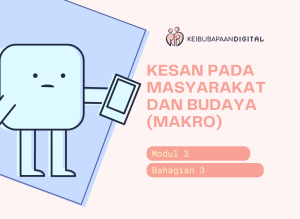By Norma Umaira – May 4, 2025 @ 9:30am
AS the saying goes, “It takes a village to raise a child”, but these days, the “village” comes with WhatsApp notifications, artificial intelligence (AI)-powered tools and digital advice on demand. Raising children today looks nothing like it did a generation ago.
For many young Malaysian parents, the end goal isn’t just good grades or good manners anymore; it’s also about raising emotionally secure, confident children in a world that’s constantly changing.
A new study by Ogilvy Malaysia, The Future of Parenting Report reveals how Gen Z and millennial parents are blending tradition with tech to create a new kind of parenting.
From co-parenting WhatsApp groups to AI-powered apps that act like digital “grandmas”, today’s parents are turning to flexible, smarter tools all in the palm of their hand.
“Modern parenting is a remix,” says Sarthak Ranka, strategy director at Ogilvy Malaysia, adding: “It’s where family traditions meet YouTube algorithms and bedtime stories are just as likely to come from an audiobook as a grandparent.”

RELIANCE ON TECHNOLOGY
One of the report’s more striking findings is the increasing reliance on technology where 69 per cent of Gen Z parents now rely on AI-powered tools to support parenting tasks. Think of them as modern-day digital grandmas where they offer advice, answer questions and even suggest meal plans when the tantrums begin.
But tech isn’t replacing people. In fact, 68 per cent of parents continue to rely on extended family for support. The kampung spirit lives on through WhatsApp groups or co-op babysitting chats. When in doubt, help is often just a message away.
TIGERS TO JELLYFISH
It seems that many young parents are steering away from the iron-clad rules of their own upbringing. Rather than replicate the strict, top-down “tiger parenting” style they grew up with, over half of young parents now prefer what’s called “jellyfish parenting”.
This softer, more flexible approach sees parents tuning in to their children’s emotional needs and giving them more autonomy. The report reveals that over 53 per cent of Gen Z parents say they’d rather not parent the way their own parents did.
In practice, this means ditching rigid bedtimes for quality time at midnight or trading in academic drills for family hikes and getaway weekends.
FAITH AND FLEXIBILITY
Spirituality isn’t lost in all this screen time either. The report notes that many parents are combining digital tools with faith-based learning, streaming religious content or using apps that teach values alongside vocabulary.
This parenting style is about emotional presence. It’s about being there not just physically, but in a way that listens, adapts and connects.
Experts have long argued that children thrive in environments that prioritise connection over correction. Children who are given space to explore, express and feel safe, often grow into more confident and resilient individuals.
The ripple effect of these changing values goes beyond the home. Schools, toy brands and healthcare providers are being challenged to keep up. “These parents aren’t just adapting to change, they’re leading it,” says Sarthak.
Continuing, he adds: “They are designing their own rituals by remixing tradition with tech, and documenting the journey in real time. If brands want to earn a place in modern family life, they’ll need to reflect these evolving values.”
As one mother in the report puts it: “I’m raising a child the best way I know how, with Google in one hand and my mother’s voice in the back of my head.”
In the end, parenting is still about love, patience and learning. But whether that comes with a lullaby or a bedtime playlist, it’s ultimately the feeling of being safe and seen that makes the biggest difference.
SUMBER NEW STRAITS TIMES







